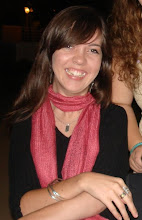
My Love of the Arbus
In my recent exploration of Diane Arbus, the acclaimed photographer of ‘freaks’, I indulged in my voyeuristic side. Arbus ‘s naked, raw exposition of the freak both frightens me and seduces me. As a person with a disability, and particularly a woman with a disability, this raw portrayl of disability, aka freakhood, provokes immediate repulsion. It is not that I found the disabled bodies repulsive, but their complete lack of “trying to be normal” has created this immensely natural aversion. Photographing the disabled in clothing which hides twisted or missing limbs, or elegantly situates the wheelchair user in positions where the wheelchair becomes a sleek assessory, all are easy to swallow. Yet Arbus photographs shows in bright glaring lights unposed, misshapen, twisted, “ugly’ bodies in all their glory. Invoking the widely popular ‘freakshow’, I along with my fellow disabled counterparts openly and loudly disparage such historical black spots, yet after my recent introduction to Arbus, I am met with the incredible seductive forces behind such voyeuristic “shows’. In looking at women with dwarfism, wearing leather dominatrix clothing or nothing at all, it invokes my shame in showing so openly my misshapen bits. Unlike the relief that most feel in seeing images of those ‘worse off then them” displaying their ‘ugliness’ like an open wound, such images create a reflection of how much I feel the need to conform to normalcy. I take great confort in the fact that I'm "beautifully abnormal". All ego aside, I have been fortunate enough to be a 'normal' looking person who just happens to sit in a wheelchair. Some limbs are abnormally shapen but through years of female cultural indocternation I have been able to hide them with fashion and make-up and a billion other beauty products. Thus, in viewing the freakshow of Diane Arbus, I am reminded of those abnormal bits of myself, both literal and figuratively. The attractiveness of such photographs is what intrigues me the most, as I believe that there is such truth shown in Arbus's photography. She shows the freaks without the show, the middle class families without pretention and celebrities without glamour. I found the picture posted above to be the most striking as for all purposes Arbus is taking a picture of a normal middle class family with a husband, a wife and two kids, but you look closer and it appears the older child has a disability and there is a distinct 'off-ness" to this family. But for me, this 'off-ness" or strangeness is what makes this family so utterly normal.
I only wish i were a subject for one of Arbus's photographs, wherein i could revel in the glory of my abnormally 'normal' bits.


